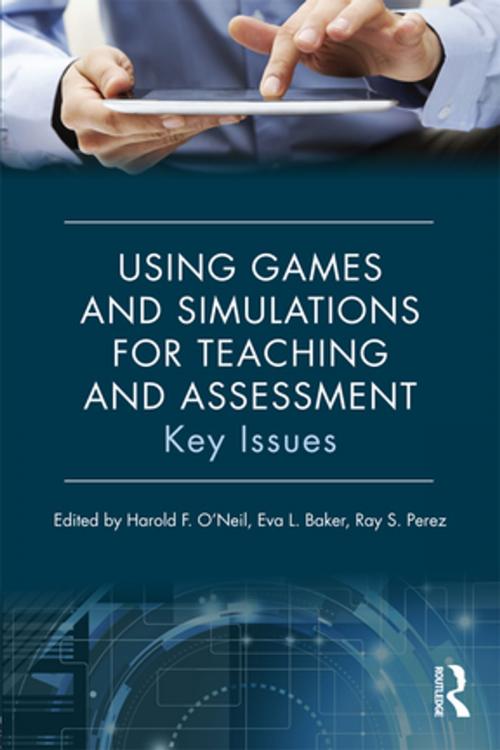Using Games and Simulations for Teaching and Assessment
Key Issues
Nonfiction, Reference & Language, Education & Teaching, Teaching, Computers & Technology, Computers| Author: | ISBN: | 9781317814665 | |
| Publisher: | Taylor and Francis | Publication: | March 31, 2016 |
| Imprint: | Routledge | Language: | English |
| Author: | |
| ISBN: | 9781317814665 |
| Publisher: | Taylor and Francis |
| Publication: | March 31, 2016 |
| Imprint: | Routledge |
| Language: | English |
Using Games and Simulations for Teaching and Assessment: Key Issues comprises a multidisciplinary investigation into the issues that arise when using games and simulations for educational purposes. Using both theoretical and empirical analyses, this collection examines cognitive, motivational, and psychometric issues with a focus on STEM content. Unlike other research-based volumes that focus solely on game design or the theoretical basis behind gaming, this book unites previously disparate communities of researchers—from civilian to military contexts as well as multiple disciplines—to critically explore current problems and illustrate how instructionally effective games and simulations should be planned and evaluated.
While computer-based simulations and games have the potential to improve the quality of education and training, Using Games and Simulations for Teaching and Assessment: Key Issues shows how the science of learning should underlie the use of such technologies. Through a wide-ranging yet detailed examination, chapter authors provide suggestions for designing and developing games, simulations, and intelligent tutoring systems that are scientifically-based, outcomes-driven, and cost-conscious.
Using Games and Simulations for Teaching and Assessment: Key Issues comprises a multidisciplinary investigation into the issues that arise when using games and simulations for educational purposes. Using both theoretical and empirical analyses, this collection examines cognitive, motivational, and psychometric issues with a focus on STEM content. Unlike other research-based volumes that focus solely on game design or the theoretical basis behind gaming, this book unites previously disparate communities of researchers—from civilian to military contexts as well as multiple disciplines—to critically explore current problems and illustrate how instructionally effective games and simulations should be planned and evaluated.
While computer-based simulations and games have the potential to improve the quality of education and training, Using Games and Simulations for Teaching and Assessment: Key Issues shows how the science of learning should underlie the use of such technologies. Through a wide-ranging yet detailed examination, chapter authors provide suggestions for designing and developing games, simulations, and intelligent tutoring systems that are scientifically-based, outcomes-driven, and cost-conscious.















